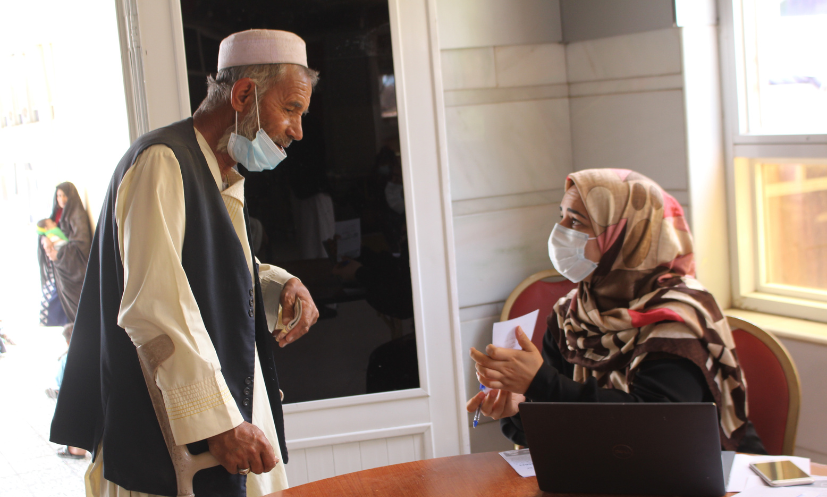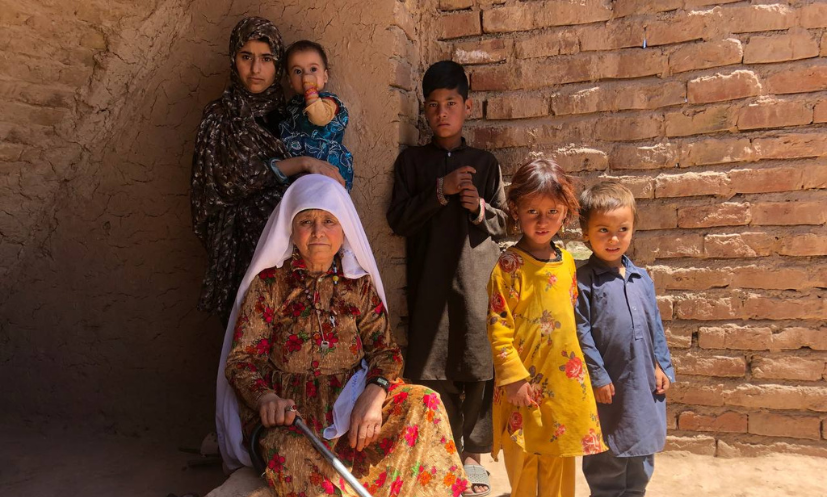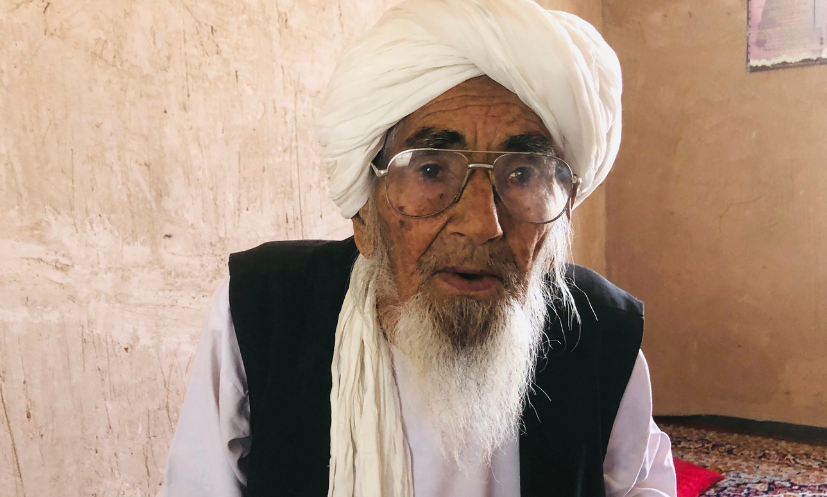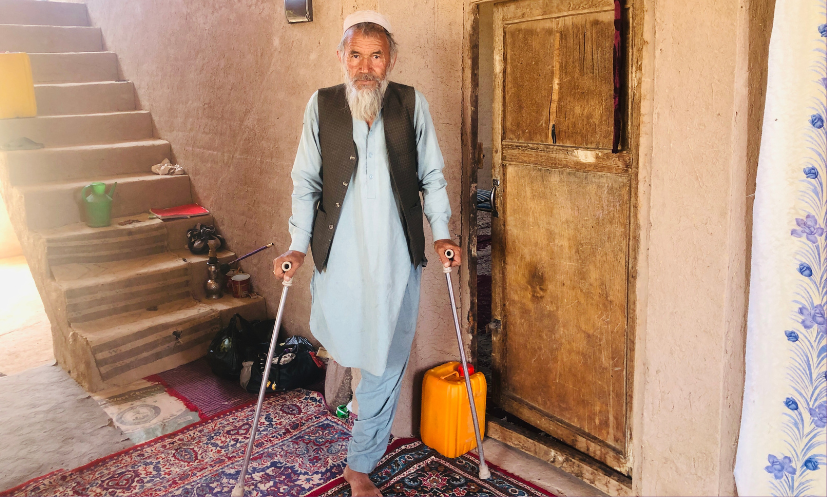Cash payments are a lifeline for older people in Afghanistan

Published on 22 August 2022 02:00 AM
Afghanistan is one of the toughest places in the world to be an older person, and the troubles last summer put them at further risk. With support from the DEC Afghanistan Crisis Appeal, we've reached over 4,400 families with support tailored to the needs of older people and those with disabilities. Here are some of the people we reached in Herat province.
If you’re an older person in Afghanistan you would likely already have lived through 40 or so years of conflict and economic crisis when the situation worsened in August 2021. Combined with severe drought and the global cost of living increases, many older people were left with empty pockets and empty plates. They told us that their income had fallen, that they were battling hunger and struggling to access medicines.
With funds from the DEC appeal, Age International has been providing a series of cash payments directly to those most in need, helping them pay for rent and buy food, essential medicines, and fuel to heat their homes.
Bibi Gul is able to stay in her home

64-year-old Bibi Gul is unable to walk or work due to her disability. She feared she would be evicted from her home, but help arrived in time.
“We are very happy that many of our problems are resolved for a few months,” she said. “We paid the rent of our house. We paid our water and electricity bill. We could pay our debts. And we have stored food and fuel for a few months.
“If I had not received this assistance, I would not have been able to do this. The house owner would have evicted us because we could not pay the rent. If you had not supported us, maybe we would be homeless or without electricity and water.”
Over the decades, many older people in Afghanistan have faced illness, disability, trauma and displacement from their homes, all of which can be barriers to accessing paid work and humanitarian support. Some also require medical treatment for chronic illnesses that are common in older age, such as dementia, diabetes or coronary heart disease. As their health and care needs increase, it can be difficult for older people and people with disabilities to find suitable jobs, and the recent economic collapse has made paid work even harder to find.
Hesamuddin is receiving medical treatment
Hesamuddin, aged 65, has been through some very dark times as his family struggled to survive without enough food, fuel, or medical treatment.
“One night, when we had nothing at home, there were only a few potatoes and we had no oil. My wife boiled the potatoes and gave them to the children to eat. Since there were only a few, my wife and I did not eat,” he said.
That was when he received news his family would receive help.
“I could not sleep the whole night due to hearing this good news. By receiving this assistance, most of our problems were solved for the next few months. We bought food. I used the money for medical treatment for myself, my wife and mother. I bought clothes, bags and notebooks for my children. I paid the electricity bill and I paid five of my debts.”
The needs of older and disabled people are not always met by traditional aid packages but cash assistance allows them to pay for items like suitable foods, medicines, fuel and rent so they can stay safe and warm in their homes. Cash is often also quicker to reach people in desperate need of support.
Gulam Mohammad is able to live with dignity

Gulam Mohammad, aged 84, has lived through much hardship but life has become even harder since the coronavirus pandemic and economic collapse in Afghanistan. His sons are unemployed, he is unable to work due to his health and has no assets. Embarrassed to ask his family for support, he was considering begging to survive before he received news of cash support.
“The assistance provided was the very first help I received in my whole life. It had a good effect on my family living conditions. I was able to buy flour and rice and a pair of glasses to help with my visual impairment. I also bought wood for the coming winter season and gave some money to my grandchildren.”
All the families surveyed by Age International after receiving cash assistance said they used it to meet their most urgent needs:
- 90% had bought food
- 60% paid for healthcare
- 30% paid for rent
In the coming weeks and months, Age International will use funds raised by the appeal to help older people access employment opportunities and provide treatment such as physiotherapy and counselling.

